Camila Beni: "Could There Be a Job With a Greater Purpose Than This?"
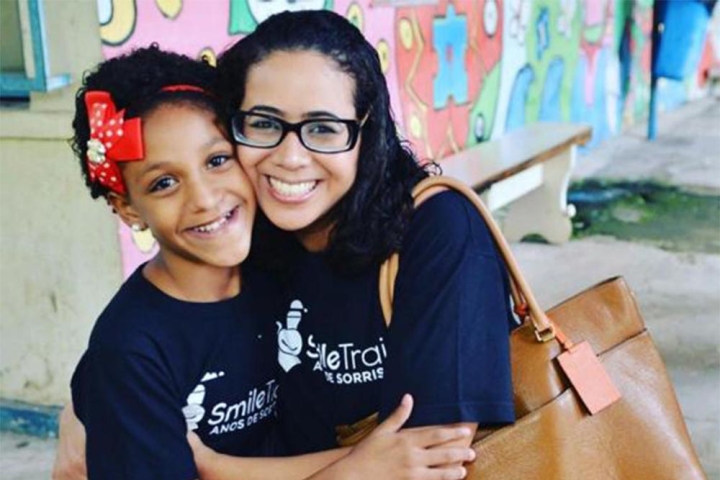
Camila Beni is the Program Manager at Smile Train Brazil. She recently sat down with us to talk about her role at Smile Train, the new challenges the COVID-19 pandemic has brought to providing cleft treatment in her region, her favorite Smile Train memories, and much more.
How did you come to Smile Train?
While studying for my Master’s degree in human rights in London, I met a man at an event who told me about the human rights organizations he admired most. He said there was one in particular that focused on one specific issue while also working to ensure that those affected by it have a real chance of being part of their communities as adults. He told me this organization helps kids transform their entire societies.
That was the day I was introduced to Smile Train.
A few years later, I saw that Smile Train was hiring for Brazil and I didn’t think twice about applying. Thank God, they hired me and I’ve been proud to work at the organization that man admired so much ever since.
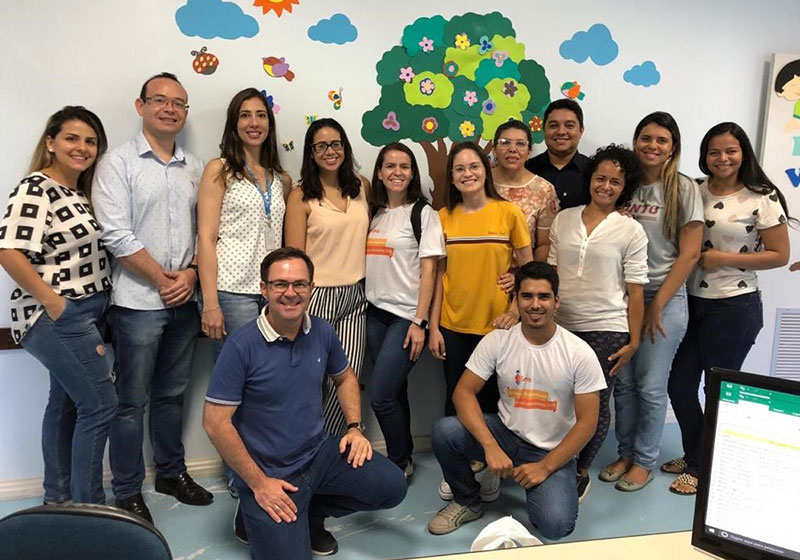
How do you describe what you do?
As Program Manager, I am responsible for all Smile Train programs in Brazil as well as the organization’s development and growth in the region, so that we can fully meet our patients’ demands for safe, high-quality cleft care.
A crucial part of my job is to develop close relationships with our more than 40 partner hospitals in the country. Only by understanding their reality and their unique needs can we act strategically together to meet the needs of our patients.
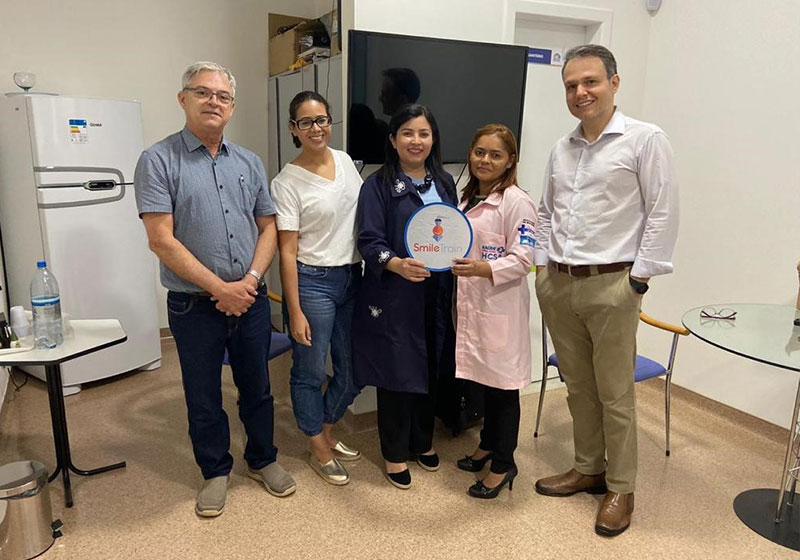
How has Smile Train Brazil adapted to the COVID-19 pandemic?
COVID-19 has deeply impacted all of our cleft centers. It forced all of our partners to close their centers indefinitely and suspend cleft surgeries.
The pandemic has meant that patients suddenly no longer have access to the people and places they had relied on to give them treatment, to ask questions to, etc. Parents of newborns with clefts also now no longer had anywhere to go to get information about clefts, how to treat them, and how they can best care for their children.
So, they had to turn to other places to find the answers — which usually meant receiving wrong information. And misinformation can have a permanent impact on children’s lives.
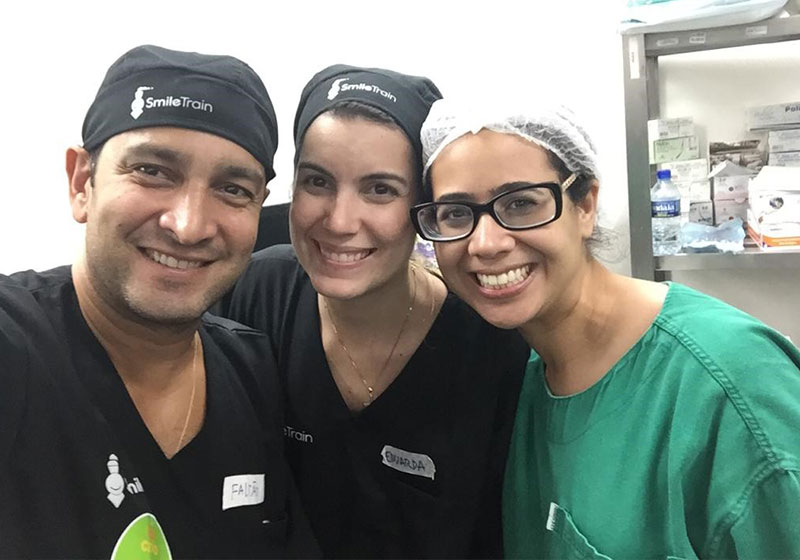
What are you doing to create smiles during the pandemic?
When COVID-19 hit, our first concern was to find new ways to help patients and their families as quickly as we could. We soon created a telecare project so our partners could assist patients remotely while also continuing with (virtual) pre-surgical consultations.
This project was a great success! Our partners were able to maintain their appointments, patients got the help they needed, and their parents felt supported during a trying time.
We have been able to assist patients in many areas — nutrition, speech therapy, consultations, all without anyone leaving their homes.
Since mid-April, our partners have helped 1,400 patients through more than 4,300 sessions and we have recieved so many thank-you messages and photos of smiling patients.
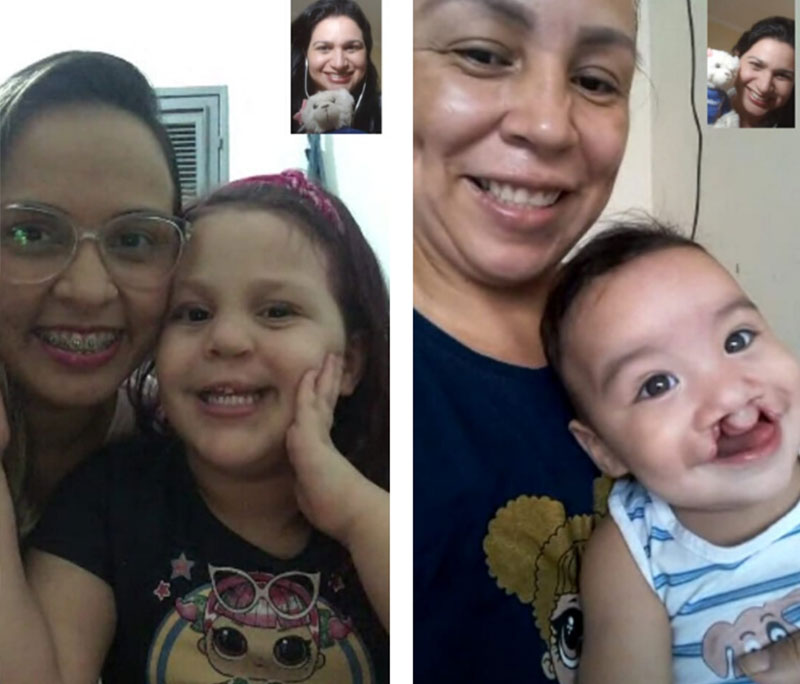
Tell us something that happened at Smile Train during the pandemic that made you smile.
There has been so much! Partners are always calling me to tell stories and talk about how much their patients are improving.
A partner who is part of the telecare program in speech therapy recently told me that patients who live far from the speech center are improving considerably, and those who, due to distance, could rarely go to the center before are now able to have therapy sessions once a week.
This change has drastically improved these patients’ speech, which has made them become more secure, with more faith in themselves and boosted self-esteem. How can I not be happy with stories like that?
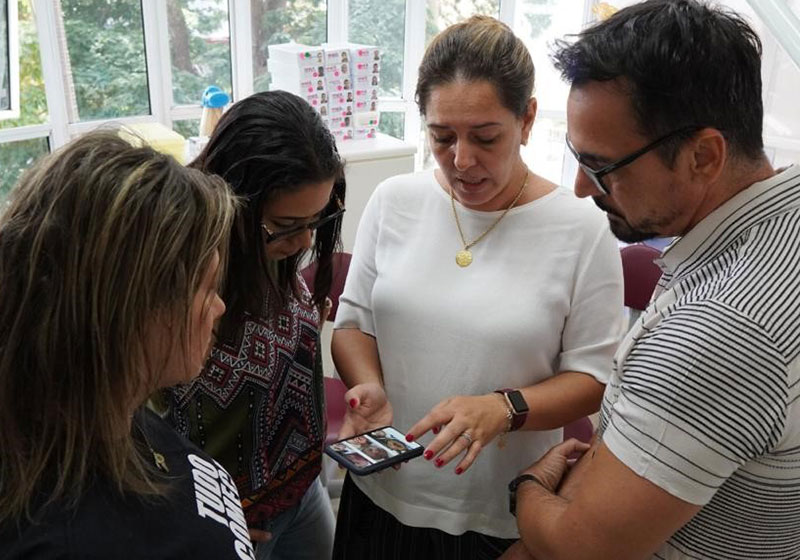
Have you noticed any kind of change in attitude toward people with clefts in Brazil since you’ve been working with Smile Train?
I believe that telemedicine is here to stay. It was something that this moment necessitated, and it allowed us to see that it is possible to do a lot with it and use it to reach many people.
Smile Train is a very nimble organization; its model allows it to pay attention to its surroundings and adapt quickly. I think it will be no different with this. Through telemedicine, it will be possible to conduct webinars, classes, and trainings much more frequently and reach professionals from remote regions, all while keeping with the highest levels of quality and safety that Smile Train demands. In a country as big as Brazil, this is wonderful.
Investing in local professionals, training them through virtual classes with well-known and experienced cleft professionals, empowering them with in-depth knowledge of the latest techniques so they can then bring them back to use them on behalf of their patients — this is using technology to truly “teach a man to fish.”
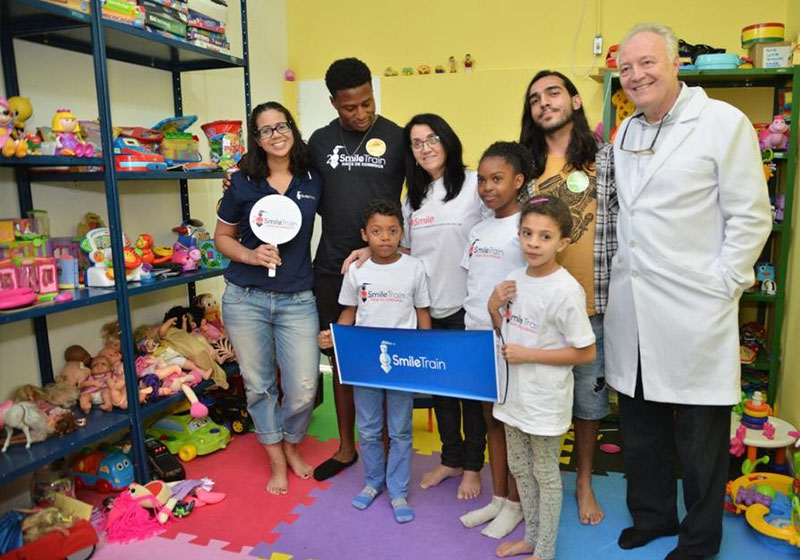
Where do you see cleft care and awareness in Brazil in 10 years? How do you see Smile Train’s role in that?
Treating a cleft is long and multidisciplinary process that usually requires so much more than surgery.
With this in mind, Smile Train has created programs to help its partners provide other essential treatments, such as speech therapy, orthodontics, and nutritional support, among others. Since these projects started, many patients have begun to understand how important these treatments are to cleft care. In fact, they have advanced so substantially in such a short time that we already have reports from patients saying that they can see in their own lives the importance of having this holistic treatment.
Professionals are always asking us for more training in these topics and our partners regularly analyze their protocols to see where they can improve, and this is all because we’ve so advanced awareness of the necessity of cleft treatment beyond surgery. In fact, not only are all our partners now aware of its importance, but they’ve shifted their work to focus on this multidisciplinary approach.
Although we have made great changes already, we still have a long way to go since there are still many patients who do not see the importance of this kind of treatment. In 10 years, I hope all of our patients will understand why this matters.
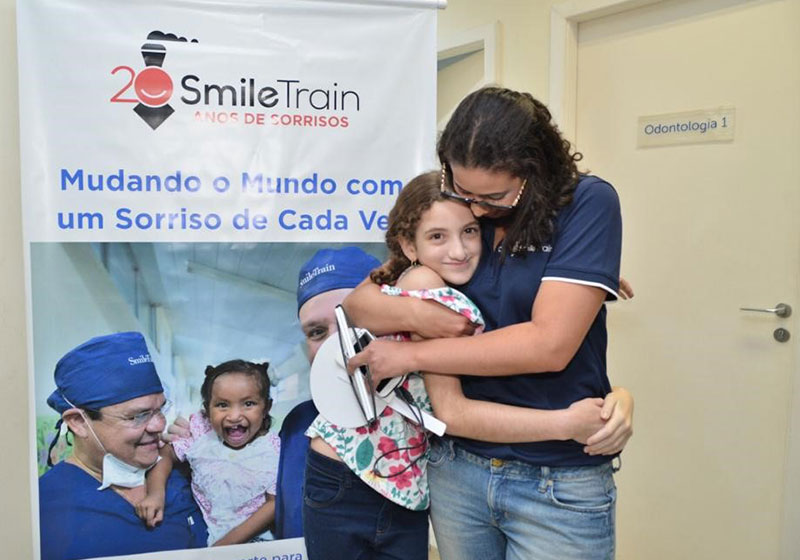
What’s your favorite part of the job?
I really enjoy visiting partners, understanding their realities and meeting their patients. All the effort and work they do on behalf of their patients is so clear and to see for myself the impact of the work we do here at Smile Train is very gratifying.
There are many reports about how we are helping our partners purchase the latest safe equipment, how we train professionals, or how we were the key to getting orthodontic, speech, or nutritional support programs off the ground.
It has been a privilege to witness, and it gives me more energy and focus to continue growing our programs and working towards the day when every cleft patient will have a chance to have a healthy and productive life.
Could there be a job with a greater purpose than this?
Help advance Smile Train’s lifesaving work in Brazil, Latin America, and around the world.
